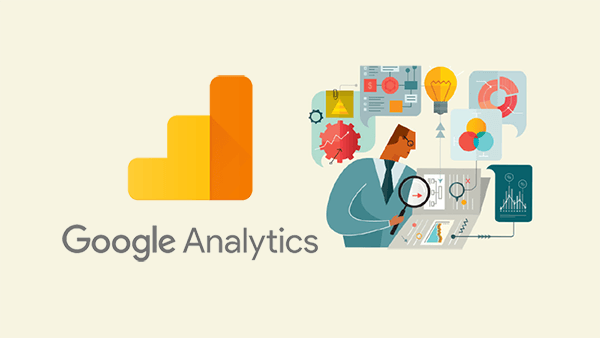
Google Analytics is a powerful, free web analytics service offered by Google that provides detailed insights into website traffic, user behavior, and other important performance metrics. This tool is designed to help businesses and website owners make data-driven decisions by tracking and analyzing various aspects of their digital presence. By implementing a simple tracking code on your website or app, Google Analytics can capture a vast array of data points, giving you a comprehensive understanding of how visitors interact with your content, which channels drive traffic, and which actions users take once on your site.
Key Features of Google Analytics:
Real-Time Data: Google Analytics offers real-time tracking, which allows users to see how many people are on their website at any given moment, which pages they are viewing, their geographical location, and their source of traffic (e.g., social media, direct search, referrals). This can help you make immediate adjustments or monitor the effects of marketing campaigns as they happen.
Audience Insights: The platform provides in-depth demographic and interest data about website visitors, including their age, gender, location, language, and the devices they are using. It also tracks user behaviors such as their previous interactions with your site, new vs. returning visitors, and customer loyalty patterns.
Acquisition Reports: Google Analytics breaks down the traffic sources driving visitors to your website, such as organic search, paid ads, social media, referral websites, and direct visits. This helps businesses evaluate the effectiveness of their marketing campaigns and optimize their acquisition channels for better reach and ROI.
Behavior Tracking: With Google Analytics, website owners can monitor how users engage with their site. This includes tracking page views, bounce rates, time spent on specific pages, and user flow through different pages or sections. It allows businesses to identify which content resonates with visitors and which areas may need improvement.
Conversion Tracking: One of the most important features of Google Analytics is the ability to set up and track goals, such as form submissions, sign-ups, purchases, or any other predefined actions that you want visitors to complete on your website. These goal conversions help measure the effectiveness of marketing strategies and how well your site is turning visitors into customers or leads.
Ecommerce Tracking: For businesses with an online store, Google Analytics can be configured to track detailed e-commerce data. This includes tracking product performance, sales transactions, revenue, and conversion rates. By linking Google Analytics to Google Ads or other platforms, you can also get insights into the performance of paid advertising campaigns for products.
Custom Reports and Dashboards: Google Analytics allows you to create custom reports and dashboards tailored to your business needs. Whether you’re looking at traffic trends, user behavior, or goal completions, you can set up customized views that aggregate the most important metrics, making it easier to track performance over time.
Segmentation and Filtering: To gain deeper insights into specific user groups, Google Analytics provides segmentation tools that allow you to isolate and analyze subsets of data, such as traffic from mobile devices, users from a specific geographic region, or visitors who completed a specific action. This helps in identifying trends or patterns that might not be apparent when looking at the website’s aggregate data.
Integration with Other Tools: Google Analytics integrates seamlessly with other Google products such as Google Ads, Google Search Console, and Google Tag Manager. This integration allows for a more holistic view of your website’s performance across various platforms and enables cross-platform tracking.
Data Sampling and Reporting: For large-scale websites with significant traffic, Google Analytics may sample data to generate reports faster. While this can sometimes reduce accuracy, the platform offers unsampled data for some premium users with Google Analytics 360. It also provides advanced reporting options like custom events, funnels, and multi-channel attribution.









